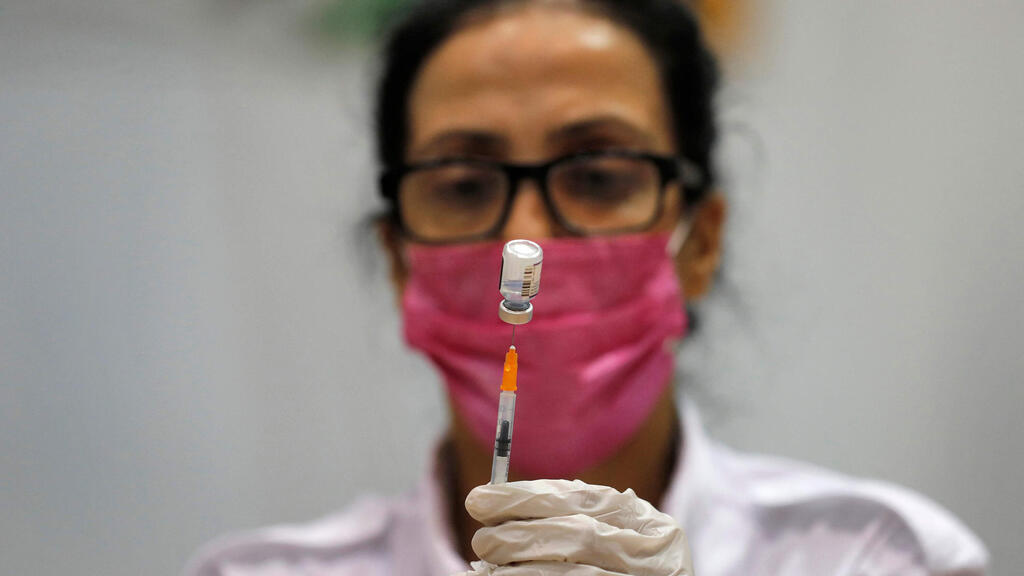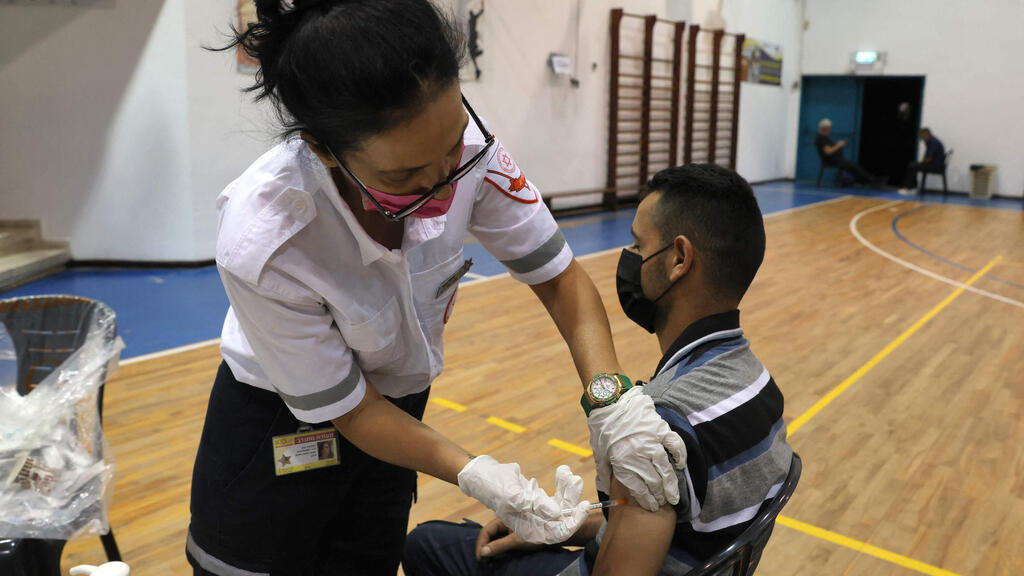The chance of contracting myocarditis, an inflammation of the heart muscle, after receiving a Coronavirus (COVID-19) vaccine is extremely rare, new Israeli research reveals.
In the study large-scale study that was published in the New England Journal of Medicine on Wednesday, researchers at Beilinson Hospital and the Clalit Health Insurance Fund collected data from two and a half million vaccinated Israelis, which shows that the risk of myocarditis after receiving a Pfizer-developed vaccination is extremely rare and does not cause significant muscle damage in the short and medium-term.
2 View gallery


A nurse prepares to administer a coronavirus booster shot in Holon in August
(Photo: AFP)
The incidence of myocarditis is 2.13 cases per 100,000 vaccinated, with 98% of them having a mild to moderate disease without any impairment of heart function.
One person suffered from a serious illness that required hospitalization, after which he recovered. The rare side effect occurred more after the second vaccine dose, 69% more than after the first, in men more than in women, and more between the ages of 16 and 29.
Dr. Guy Whitberg, Cardiologist at Beilinson Hospital, said that “this study is the first to reliably assess the incidence of myocarditis, the main side effect that was found to be related to the corona vaccine.”
2 View gallery


A young man receives his third dose of a coronavirus vaccine in Holon in August
(Photo: AFP)
The study’s findings show that it is a relatively rare side effect even in the population group at the highest risk, young men.
Furthermore, the study findings show that “in the vast majority of cases, it is a mild disease with a benign course that does not significantly affect cardiac function in the short term and is not expected to affect patients’ health in the long term,” he noted.
Professor Ran Kornowski, director of the cardiology department at Beilinson Hospital, noted that these are “significant results and that researchers hope they will enable informed decisions about the enormous and proven benefit of the vaccine’s high efficacy, and the importance of preventing viral morbidity, relative to the side effect of myocarditis.”
First published: 08:27, 10.07.21

